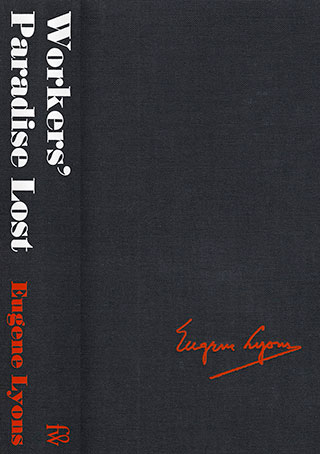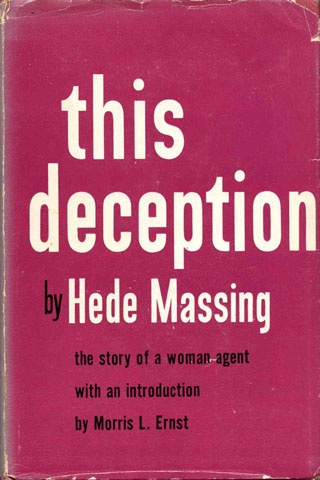Capital Punishment
March 9, 2015
Any government that succeeds in controlling the monetary transactions of the individual can then control the individual.
âIn the end, more than freedom, they wanted security. They wanted a comfortable life, and they lost it allâsecurity, comfort, and freedom. When the Athenians finally wanted not to give to society but for society to give to them, when the freedom they wished foremost was freedom from responsibility, then Athens ceased to be free and was never free again.â â Edward Gibbon, English historian and member of Parliament, commenting on Ancient Athens in The History of the Decline and Fall of the Roman Empire, published in six volumes between 1776 and 1788.
âThose who trade liberty for security deserve neither and will lose both.â â John Adams
Libertarians (myself included) now grind their teeth on a daily basis, as they watch the parade of irresponsible economic measures concocted by First World political and banking leaders. Each measure seems more outrageous than the last, both in its inability to correct the situation and its outright thievery from the purse of the populace.
The EU recently announced that they will introduce a level of quantitative easing (QE) that promises to be the economic equivalent of an overdose to a heroin addict. In addition, the EU, the US, Canada, and other First World countries have created bail-in legislation that will allow their bankers to literally steal the funds of their depositors.
Further, political leaders on both sides of the Atlantic have announced that pensionersâ funds are âin danger,�? and their solution is to make it mandatory for the funds to contain a percentage of investment in government bondsâan investment that promises to go off the proverbial cliff in the coming years.
So, whatâs the plan? Are the leaders of the worldâs most âadvanced�? nations planning collective economic and political suicide? Or are they simply so stupid/arrogant/out of touch with realityâpick your explanationâthat they just donât understand that economic collapse is now baked in the cake and it is now only a question of time?
Or do they have an alternate plan?
I must confess that Iâm cynical enough to regard many of the leaders in question as being stupid, arrogant, and out of touch with reality. However, I do also believe that some of them are clever enough and devious enough to have a plan in place as to how they might continue to not only hold their power, but expand upon it. (That desire is, of course, a virtually universal truth, as regards world leadersâto always be planning greater power for themselves.)
The Yen, the Euro, and the US Dollar Will Collapse
At least three of the worldâs five leading currencies will surely collapse, and very possibly, in the above order. History shows that, when a currency collapses, itâs always replaced immediately. Sometimes, the replacement is supplied by the government itself. Sometimes, the free market replaces the currency with whatever is the ânext best thing.�? In the last century, the US dollar has most often been the handiest next best thing, for countries from A to Z (Argentina to Zimbabwe).
But this time around, the US dollar will be one of the currencies that will be shown the door. What then?
Enter the Saviour Currency
I project that, when the dollar collapses, paper currency itself (not those who created it) will be blamed. Government leaders will wag their collective finger at those who have subverted the good that QE had been intended to do. Without putting too fine a point on it, the public will get the message that the only problem with QE was that the greedy One Percent sought to profit greatly from it, so the stimulus never sufficiently reached the man on the street.
But all will not be lost. Governments will vow to stand together to overcome the damage done by the powerful usurpers by creating a new form of currency that is fully controlled by the governments. The new form of currency will be electronic and will promise to end all monetary woes, as the governments will be able to track all monetary transactions of every kind. It may take the form of several new national currencies, but I believe itâs more likely that itâll be a single IMF-centred currency that will be adopted by many countries.
Existing bank accounts would be converted to New Currency accounts and anyone who does not already have a bank account will be advised to create an account with a bank, as he will need it to perform transactions. All incoming funds (wages, sale of goods, etc.) will go directly into the account, and all outgoing funds (purchases, payments for services, etc.) will be directly debited from the account.
Importantly, the failed paper currency will be done away with, and all monetary transactions will be made through the bank account. Further, barter will be discouraged and very possibly outlawed.
But why an electronic monetary system? Because it answers all the desires of the banking institutions and governments. First, it assures that every individual must have a primary bank account, or he cannot function monetarily. This puts the bank in the driverâs seat. It can then step up the rules and increase its charges to customers.
For the government, it will mean that, since every monetary transaction made by an individual is recorded in his account, there will no longer be a need for him to file for tax payments. The government can unilaterally assess the tax due and debit it directly from the account. (If the individual disagrees with the amount of the debit, he may contest it and hope to regain a portion of his payment if he wins his case.)
In order to âavoid the hardship on the individual�? of annual taxation, it will be shortened to a quarterly debit and possibly even a monthly debit. Over time, tax rates and reasons for tax debits will become increasingly complex and confusing, as will increasingly complicated bank charges.
But wonât the public be outraged? No, quite the opposite. If itâs sold to the public properly, theyâll welcome it with open arms. After all, its purpose will be âto end the manipulation of the peopleâs assets by a greedy few and assure that never again will the people have to endure a currency collapse.�?
As Josef Goebbels advised, itâs easy to convince a population that a desired measure is necessary. First, convince them that there is a demon out there, then provide a âsolution�? to defeat that demon.
People will be badly shaken up by the collapse of the currency and will look to the new system to provide them with greater safety, when what they will really be getting is enslavement to banks and governments.
Still, there will be some pushback against the new system, but it may easily be trounced by the regular claims that the system will also limit financial transactions by terrorists. (Anyone who disagrees with the system might therefore be deserving of investigation for terrorism involvement.)
In 1947, when George Orwell wrote 1984, he correctly anticipated the use of technology in creating a world in which Big Brother knew all. Had Mister Orwell been writing in the age of computerisation, I have little doubt that he would have predicted the above. Certainly, any government that succeeds in controlling the monetary transactions of the individual can then control the individual.
Digital discoveries
- Migliori Casino Online
- Casino Non AAMS
- Siti Casino
- Sites De Paris Sportifs Belgique
- Tous Les Sites De Paris Sportifs Belgique
- Meilleur Casino En Ligne Belgique
- Casino En Ligne Belgique Bonus
- I Migliori Casino Online
- Non Aams Casino
- Scommesse Italia App
- Migliori Casino Online Esteri
- Paris Sportif Crypto Sans Kyc
- Site De Paris Sportif
- Sweet Bonanza Avis
- Paris Sportif Ufc
- ãªã³ã©ã¤ã³ã«ã¸ã åºéæ©ã
- Casino Live En Ligne Français
- Site De Paris Sportifs
- Meilleurs Nouveaux Casinos En Ligne
- Casino En Ligne Français
- Casino En Ligne
- Casino Retrait Instantané
- Casino En Ligne Fiable
- Meilleur Casino En Ligne 2026
- Casino En Ligne Retrait Immédiat
- Casino Français En Ligne
- Casino Italia Non Aams
- Casino Con Free Spin Senza Deposito
- Siti Di Scommesse Non Aams
- Migliore Casino Non Aams
- Casino Online Non Aams 2026
- í í ì¬ì´í¸ 모ì
- Top 10 Trang Cá Äá» Bóng Äá
- Casino En Ligne
- Casino En Ligne France
- Casino En Ligne Argent Réel
- Casino En Ligne Retrait Immédiat 2026
- Nouveau Casino En Ligne 2026








